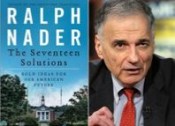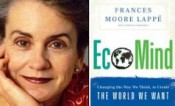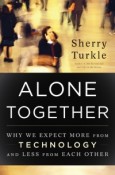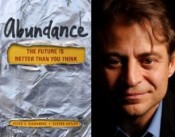DISRUPTIVE: BIO-INSPIRED ROBOTICS features three separate interviews with (1) RADHIKA NAGPAL, (2) ROBERT WOOD, and (3) CONOR WALSH
Written on October 7th, 2015Welcome to the second episode of my new monthly podcast series produced with Harvard’s Wyss Institute for Biologically Inspired Engineering.
DISRUPTIVE: BIO-INSPIRED ROBOTICS features three separate interviews with (1) RADHIKA NAGPAL, (2) ROBERT WOOD, and (3) CONOR WALSH. From insects in your backyard, to creatures in the sea, to what you see in the mirror, engineers and scientists at Wyss are drawing inspiration to design a whole new class of smart robotic devices
In this one, RADHIKA NAGPAL talks about her work Inspired by social insects and multicellular systems, including the TERMES robots for collective construction of 3D structures, and the KILOBOT thousand-robot swarm. She also speaks candidly about the challenges faced by women in the engineering and computer science fields.
In part two, ROBERT WOOD discusses new manufacturing techniques that are enabling popup and soft robots. His team’s ROBO-BEE is the first insect-sized winged robot to demonstrate controlled flight.
In part three, CONOR WALSH discusses how a wearable robotic exosuit or soft robotic glove could assist people with mobility impairments, as well as how the goal to create real-world applications drives his research approach.
The mission of the Wyss Institute is to: Transform healthcare, industry, and the environment by emulating the way nature builds, with a focus on technology development and its translation into products and therapies that will have an impact on the world in which we live. Their work is disruptive not only in terms of science but also in how they stretch the usual boundaries of academia.
DISRUPTIVE: BIO-INSPIRED ROBOTICS Robert Wood Interview
Free Forum Q&A – PETER DIAMANDIS Chairman, X PRIZE Foundation author, ABUNDANCE: The Future Is Better Than You Think
Written on June 5th, 2015
Originally aired March 2012
Opening day of the 2012 TED conference featured two talks one after the other. The first by Paul Gilding entitled The Earth is Full asked questions like, Have we used up all our resources? Have we filled up all the livable space on Earth? Gilding suggests we have – with the possibility of devastating consequences. In a talk that’s equal parts terrifying and oddly hopeful, he says, “It takes a good crisis to get us going. When we feel fear and we fear loss we are capable of quite extraordinary things.”
That talk was followed by one by this week’s guest, PETER DIAMANDIS, entitled ABUNDANCE IS OUR FUTURE, in which he makes the case for optimism – that we’ll invent, innovate and create ways to solve the challenges that loom over us. “I’m not saying we don’t have our set of problems — climate crisis, species extinction, water and energy shortages – we surely do. But ultimately, we knock them down.”
Since the dawn of humanity, a privileged few have lived in stark contrast to the majority. Conventional wisdom says this gap cannot be closed. But, according to a book by Diamandis and co-author Steven Kotler, it is closing – fast. ABUNDANCE – THE FUTURE IS BETTER THAN YOU THINK documents how progress in artificial intelligence, robotics, infinite computing, ubiquitous broadband networks, digital manufacturing, nanomaterials, synthetic biology, and many other exponentially growing technologies will enable us to make greater gains in the next two decades than we have in the previous two hundred years. They believe we will soon have the ability to meet and exceed the basic needs of every man, woman, and child on the planet.
RALPH NADER, The Seventeen Solutions: Bold Ideas for a New America
Written on January 22nd, 2015 |
Aired 10/14/12
I’ll be talking with NADER about the critical ideas in his wonderful new book, THE 17 SOLUTIONS: Bold Ideas for Our American Future. Learn more about RALPH NADER and SEVENTEEN SOLUTIONS at http://nader.org/
Some of the 17 solutions:
* Reforming the tax system
* Making our communities more self-reliant
* Reclaiming science and technology for the people
* Getting corporations off welfare
* Creating national charters for large corporations
* Reducing our bloated military budget
* Organizing congressional watchdog groups
* Enlisting the enlightened super-rich
* Use government procurement to spur innovation
RALPH NADER was recently named by the Atlantic as one of the 100 most influential figures in American history, one of only four living people to be so honored. The son of immigrants from Lebanon, he has launched two major presidential campaigns and founded or organized more than one hundred civic organizations. His groups have made an impact on tax reform, atomic power regulation, the tobacco industry, clean air and water, food safety, access to health care, civil rights, congressional ethics, and much more. He is the author of eleven books, including UNSAFE AT ANY SPEED; THE GOOD FIGHT; THE SEVENTEEN TRADITIONS; and his latest, THE SEVENTEEN SOLUTIONS: BOLD IDEAS FOR OUR AMERICAN FUTURE.
Q&A: Frances Moore Lappé, Author – ECOMIND: CHANGING THE WAY WE THINK, TO CREATE THE WORLD WE WANT
Written on October 2nd, 2014 |
Aired: 9/8/13
Originally Aired: 12/30/12
Where do you think the most important changes need to take place to turn things around in terms of big issues like the economy, the environment, and social justice?
Some might say climate change is the critical global issue so it must be clean energy. Others might say nothing will make as much difference for the world’s people as educating and empowering girls and women. Closer to home, a case can be made that public financing of political campaigns would have the most impact on all such issues by making it possible for the power of the United States to become a greater force for good.
All good answers, but this week’s guest gives another answer – and its one that I share. Frances Moore Lappe, who has herself been a force for good at least since the publication of the phenomenal best-seller Diet for a Small Planet in 1971, says that the greatest impact would follow from changing our minds.
In her 18th book, ECOMIND: CHANGING THE WAY WE THINK, TO CREATE THE WORLD WE WANT, Lappé argues that much of what is wrong with the world, from eroding soil to eroding democracies, results from ways of thinking that are out of sync with human nature and nature’s rhythms. Humans are doers, she says. But our capacity for doing is undermined by seven “thought traps” that leave us mired in fear, guilt, and despair — none of which are motivators to action.
Drawing on the latest research in climate studies, anthropology, and neuroscience, she weaves her analysis together with stories of real people the world over, who, having shifted some basic thought patterns, now shift the balance of power in our world. Chapter-by-chapter, Lappé takes us from “thought trap” to “thought leap,” and with each shift, challenges become opportunities.
Q&A: SHERRY TURKLE, Psychologist & Author – ALONE TOGETHER
Written on August 6th, 2014 |
Aired 02/13/11
How much technology do you use? Email, texting, facebook, twitter, second life, etc. How's it working for you? Has it freed you up, given you more time, or has it added new demands to your life that actually make you feel you have less time? If you're using social media regularly, do you feel more connected with your friends and family or less?
Clinical psychologist SHERRY TURKLE has been studying our relationship with technology for most of her career, and has written several books about what she's experienced and learned. Of her newest, ALONE TOGETHER, she has said, "This is a book of repentance. I have been studying computers and people for thirty years. I didn't see several important things. I got some important things wrong." I was already interested in talking to her, but that really grabbed my attention. I'm interested in people, maybe especially experts, who are willing to change their minds.
Turkle writes: "Technology promises to let us do anything from anywhere with anyone. But it also drains us as we try to do everything everywhere. We begin to feel overwhelmed and depleted by the lives technology makes possible. We may be free to work from anywhere, but we are also prone to being lonely everywhere. In a surprising twist, relentless connection leads to a new solitude. We turn to new technology to fill the void,but as technology ramps up, our emotional lives ramp down."
http://www.alonetogetherbook.com/

